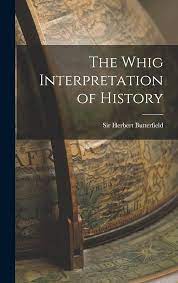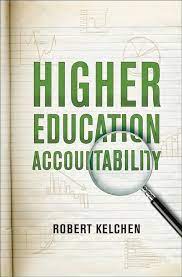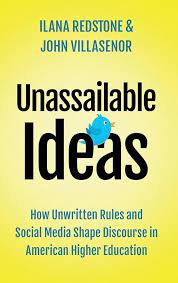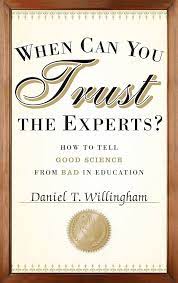Time for a confession: Last year, I set my goal for the Martin Center’s library far too high. I hoped we would have 1,000 books by the end of 2023. But, barring a Christmas miracle, that seems unlikely. The Martin Center library, as of yesterday, has exactly 900 books. (You can see the full list here.)
That said, our library has grown significantly in the five years since we started the project. At the beginning of 2019, we had just 500 books. By the end of 2024, I’m confident that we will hit our (now achievable) goal of 1,000.
Over the next year, I look forward to perusing the latest offerings from academic publishers, hunting for education classics at my local used bookstore, and receiving book donations from the Martin Center’s dedicated supporters. We’ll also be sure to review any new additions to our library that are must-reads about higher education.
Here are 10 book that I’d love to find under the Christmas tree to get us started on our goal for 2024:
 1. The Whig Interpretation of History by Herbert Butterfield (1957)
1. The Whig Interpretation of History by Herbert Butterfield (1957)
From the publisher:
The Whig historian studies the past with reference to the present. He looks for agency in history. And, in his search for origins and causes, he can easily select those facts that give support to his thesis and thus eliminate other facts equally important to the total picture. The Whig historian tends to judge, to make history answer questions, and to overdramatize by simplification and organization around attractive themes. The value of history, however, as Professor Butterfield shows, lies in the richness of its recovery of the concrete life of the past. The true historian studies the past for its own sake. He sees “in each generation a clash of wills out of which there emerges something that probably no man ever willed,” and his creative work is to make the past intelligible to the present by insight and sympathy with the conditions of the past.
2. Intellectual Humility: An Introduction to the Philosophy and Science by Ian M. Church and Peter L. Samuelson (2017)
From the publisher:
Why care about intellectual humility? What is an intellectual virtue? How do we know who is intellectually humble? The nature of intellectual virtues is a topic of ancient interest. But contemporary philosophy has experienced unparalleled energy and concern for one particular virtue over the past 30 years: intellectual humility. Intellectual Humility: An Introduction to the Philosophy and Science draws on leading research to provide an engaging and up-to-date guide to understanding what it is and why it’s important.
3. The Anxious Generation: How the Great Rewiring of Childhood Is Causing an Epidemic of Mental Illness by Jonathan Haidt (2024)
From the publisher:
In The Anxious Generation, social psychologist Jonathan Haidt lays out the facts about the epidemic of teen mental illness that hit many countries at the same time. He then investigates the nature of childhood, including why children need play and independent exploration to mature into competent, thriving adults. Haidt shows how the “play-based childhood” began to decline in the 1980s, and how it was finally wiped out by the arrival of the “phone-based childhood” in the early 2010s. He presents more than a dozen mechanisms by which this “great rewiring of childhood” has interfered with children’s social and neurological development, covering everything from sleep deprivation to attention fragmentation, addiction, loneliness, social contagion, social comparison, and perfectionism. He explains why social media damages girls more than boys and why boys have been withdrawing from the real world into the virtual world, with disastrous consequences for themselves, their families, and their societies.
 4. Higher Education Accountability by Robert Kelchen (2018)
4. Higher Education Accountability by Robert Kelchen (2018)
From the publisher:
As the price tag of higher education continues to rise, colleges and universities across the country are under increasing pressure to demonstrate their value. Graded on numerous metrics, including cost and ability to prepare students for the job market, colleges must satisfy requirements from multiple stakeholders. State and federal governments demand greater accountability. Foundations and private donors, as well as today’s parents and students, approach education with a consumer sensibility. How can colleges navigate these pressures while trying to stay true to their missions and values?
5. Free Speech: A History from Socrates to Social Media by Jacob Mchangama (2022)
From the publisher:
In Free Speech, Jacob Mchangama traces the riveting legal, political, and cultural history of this idea. Through captivating stories of free speech’s many defenders—from the ancient Athenian orator Demosthenes and the ninth-century freethinker al-Rāzī, to the anti-lynching crusader Ida B. Wells and modern-day digital activists—Mchangama reveals how the free exchange of ideas underlies all intellectual achievement and has enabled the advancement of both freedom and equality worldwide. Yet the desire to restrict speech, too, is a constant, and he explores how even its champions can be led down this path when the rise of new and contrarian voices challenge power and privilege of all stripes.
6. The Identity Trap: A Story of Ideas and Power in Our Time by Yascha Mounk (2023)
From the publisher:
In The Identity Trap, Mounk provides the most ambitious and comprehensive account to date of the origins, consequences, and limitations of so-called “wokeness.” He is the first to show how postmodernism, postcolonialism, and critical race theory forged the “identity synthesis” that conquered many college campuses by 2010. He lays out how a relatively marginal set of ideas came to gain tremendous influence in business, media, and government by 2020. He makes a nuanced philosophical case for why the application of these ideas to areas from education to public policy is proving to be so deeply counterproductive—and why universal, humanist values can best serve the vital goal of true equality. In explaining the huge political and cultural transformations of the past decade, The Identity Trap provides truth and clarity where they are needed most.
 7. Unassailable Ideas: How Unwritten Rules and Social Media Shape Discourse in American Higher Education by Ilana Redstone and John Villasenor (2020)
7. Unassailable Ideas: How Unwritten Rules and Social Media Shape Discourse in American Higher Education by Ilana Redstone and John Villasenor (2020)
From the publisher:
In Unassailable Ideas, Ilana Redstone and John Villasenor examine the dominant belief system on American campuses, its uncompromising enforcement through social media, and the consequences for higher education. They argue that two trends in particular—the emergent role of social media in limiting academic research and knowledge discovery and a campus culture increasingly intolerant to diverse views and open inquiry—are fundamentally reshaping higher education. Redstone and Villasenor further identify and explain how three well-intentioned unwritten rules regarding identity define the current campus climate. They present myriad case studies illustrating the resulting impact on education, knowledge creation, and increasingly the world beyond campus. They also provide a set of recommendations to build a new campus climate that would be more tolerant toward diverse perspectives and open inquiry.
8. Alternative Universities: Speculative Design for Innovation in Higher Education by David J. Staley (2019)
From the publisher:
How can we re-envision the university? Too many examples of what passes for educational innovation today―MOOCs especially―focus on transactions, on questions of delivery. In Alternative Universities, David J. Staley argues that modern universities suffer from a poverty of imagination about how to reinvent themselves. Anyone seeking innovation in higher education today should concentrate instead, he says, on the kind of transformational experience universities enact. In this exercise in speculative design, Staley proposes ten models of innovation in higher education that expand our ideas of the structure and scope of the university, suggesting possibilities for what its future might look like.
9. HATE: Why We Should Resist It with Free Speech, Not Censorship by Nadine Strossen (2018)
From the publisher:
The updated paperback edition of HATE dispels misunderstandings plaguing our perennial debates about “hate speech vs. free speech,” showing that the First Amendment approach promotes free speech and democracy, equality, and societal harmony. As “hate speech” has no generally accepted definition, we hear many incorrect assumptions that it is either absolutely unprotected or absolutely protected from censorship. Rather, U.S. law allows government to punish hateful or discriminatory speech in specific contexts when it directly causes imminent serious harm. Yet, government may not punish such speech solely because its message is disfavored, disturbing, or vaguely feared to possibly contribute to some future harm. “Hate speech” censorship proponents stress the potential harms such speech might further: discrimination, violence, and psychic injuries. However, there has been little analysis of whether censorship effectively counters the feared injuries. Citing evidence from many countries, this book shows that “hate speech” [laws] are at best ineffective and at worst counterproductive. Therefore, prominent social justice advocates worldwide maintain that the best way to resist hate and promote equality is not censorship, but rather, vigorous “counterspeech” and activism.
 10. When Can You Trust the Experts?: How to Tell Good Science from Bad in Education by Daniel Willingham (2012)
10. When Can You Trust the Experts?: How to Tell Good Science from Bad in Education by Daniel Willingham (2012)
From the publisher:
Each year, teachers, administrators, and parents face a barrage of new education software, games, workbooks, and professional development programs purporting to be “based on the latest research.” While some of these products are rooted in solid science, the research behind many others is grossly exaggerated. This new book, written by a top thought leader, helps everyday teachers, administrators, and family members―who don’t have years of statistics courses under their belts―separate the wheat from the chaff and determine which new educational approaches are scientifically supported and worth adopting.
It may be too late for Santa to wrap these books in time for Christmas morning. But it’s not too late to donate one of them before the end of the year. If you would like to make an end-of-year book donation to the Martin Center, you can buy any of the ones listed above (or another of your choice) from the Martin Center’s Amazon Wish-List.
Thank you for reading our work and supporting us throughout the year.
Merry Christmas to all, and to all a good night—from all of us at the Martin Center.
Jenna A. Robinson is the president of the James G. Martin Center for Academic Renewal.

